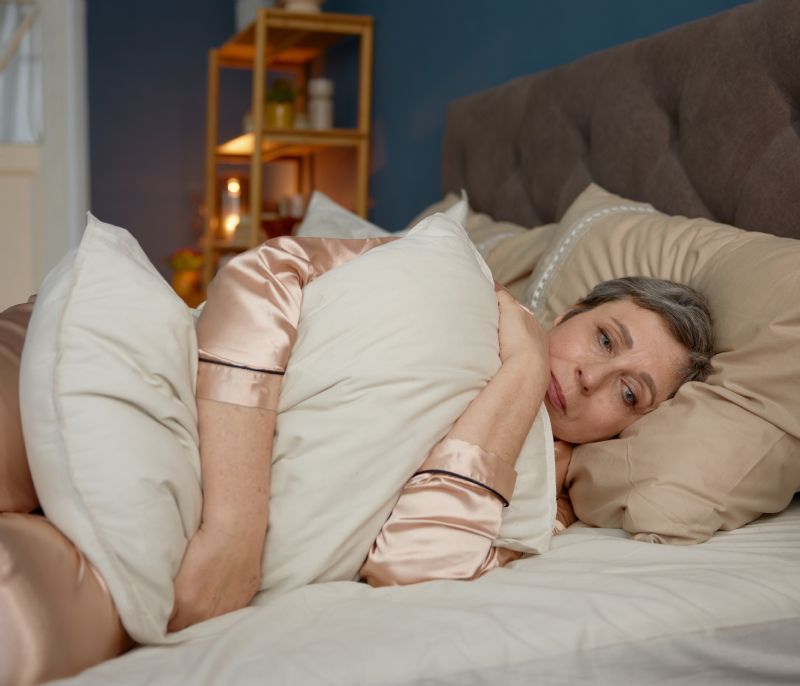- Home
- News, Articles & Reviews
We are hiring! Please click here to join our growing magazine delivery team in Gloucestershire!

Body dysmorphia and menopause
All Areas > Health & Beauty > Looking Good, Feeling Great
Author: Will Mbanga, Posted: Wednesday, 26th June 2024, 09:00
Following on from last month’s introduction to body dysmorphia, our focus now turns to its impact on pre- and post-menopausal women. We will explore how body dysmorphia affects this population and learn about the challenges they face in coping with societal expectations and self-image.
Pre-menopausal women often experience significant hormonal fluctuations, which can influence mood, self-esteem, and body image perceptions. These hormonal changes may increase feelings of dissatisfaction with one’s appearance, leading to heightened vulnerability and, often, to body dysmorphia.
The pressure to conform to societal beauty standards, perpetuated by media representations of ideal female bodies, further exacerbates these negative feelings. As a result, pre-menopausal women may be tempted to engage in excessive dieting, compulsive exercising, or seeking cosmetic procedures in an attempt to achieve an unrealistic ideal.
The onset of menopause marks a significant transition in a woman’s life. It is characterised by hormonal shifts and physical changes such as weight gain, redistribution of fat, and alterations in skin elasticity. These changes can profoundly impact a woman’s self-esteem, particularly if she perceives them as undesirable or indicative of ageing.
Body dysmorphia may manifest or intensify during this stage, as women struggle to reconcile their changing bodies with society’s expectations of youthfulness and beauty. The fear of becoming invisible or undesirable in a culture that glorifies youth can contribute to feelings of inadequacy and self-loathing.
Distorted perceptions of self-image
Post-menopausal women face additional challenges in coping with body dysmorphia, as they navigate the complexities of ageing. The intersection of ageism and sexism can increase feelings of worthlessness and invisibility, leading to heightened body dissatisfaction and distorted perceptions of self-image.
Moreover, the lack of representation of older women in media and advertising perpetuates narrow beauty standards, further marginalising their experiences.
The impact of body dysmorphia on pre- and post-menopausal women extends beyond psychological distress to encompass physical health outcomes as well. Disordered eating, excessive exercise, and cosmetic procedures undertaken in pursuit of an idealised body can have detrimental effects on women’s physical wellbeing, increasing the risk of eating disorders, injuries, and complications from medical interventions.
Addressing body dysmorphia in this population requires a multi-faceted approach that acknowledges the intersection of gender, age, and societal influences on body image. Education and awareness aimed at challenging unrealistic beauty standards and promoting body acceptance can help empower women to embrace their bodies at every stage of life.
Additionally, access to mental health resources such as counselling or support groups is essential for providing women with the tools and strategies to cope with body dysmorphia in a healthy and constructive way.
Body dysmorphia exerts a significant toll on pre- and post-menopausal women, impacting their mental and physical wellbeing as they navigate the challenges of ageing.
By recognising the unique experiences and vulnerabilities of these women, we can work towards creating a more inclusive and supportive environment that promotes body acceptance and self-love at every stage of life.Copyright © 2026 The Local Answer Limited.
Unauthorized use and/or duplication of this material without express and written permission from this site's author and/or owner is strictly prohibited. Excerpts and links may be used, provided that full and clear credit is given to The Local Answer Limited and thelocalanswer.co.uk with appropriate and specific direction to the original content.More articles you may be interested in...


© 2026 The Local Answer Limited - Registered in England and Wales - Company No. 06929408
Unit H, Churchill Industrial Estate, Churchill Road, Leckhampton, Cheltenham, GL53 7EG - VAT Registration No. 975613000You are leaving the TLA website...
You are now leaving the TLA website and are going to a website that is not operated by us. The Local Answer are not responsible for the content or availability of linked sites, and cannot accept liability if the linked site has been compromised and contains unsuitable images or other content. If you wish to proceed, please click the "Continue" button below:




